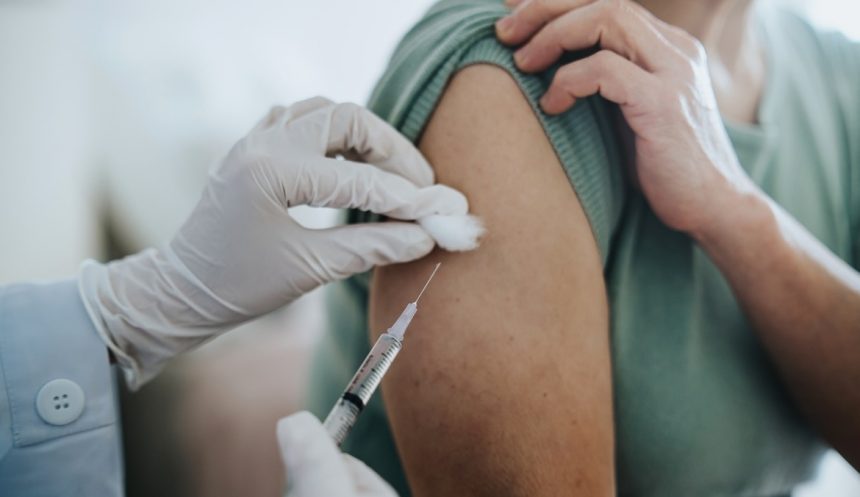Scientists at the University of Oxford have secured funding to develop the world’s first vaccine for ovarian cancer, a deadly disease affecting thousands annually.
The vaccine, named OvarianVax, will target two significant DNA mutations linked to an increased risk of ovarian cancer: the BRCA1 and BRCA2 genes. While these mutations are commonly associated with breast cancer, they also elevate the risk of ovarian cancer. Individuals with the BRCA mutation face up to a 46 percent lifetime risk of ovarian cancer, compared to the general population’s 1 percent risk, according to Johns Hopkins Medicine.
OvarianVax could be a groundbreaking advancement in preventing this disease. Ovarian cancer is often undiagnosed, misdiagnosed, and challenging to treat at advanced stages. The lack of routine screening tests further complicates early detection, as symptoms can be vague and easily mistaken for other conditions, as per MD Anderson Cancer Center.
Discover the latest in ovarian cancer vaccine development and how it differs from other cancer-preventative vaccines like Gardisil.
How Will the Ovarian Cancer Vaccine Work?
OvarianVax will be designed by studying how the immune system identifies ovarian cancer cells. Researchers will analyze ovarian cancer samples from patients, looking for common mutations that produce “abnormal proteins” recognizable by the immune system. The goal is to create a vaccine that prompts the immune system to detect these anomalies, as stated in the University of Oxford’s recent announcement.
“Teaching the immune system to recognize early signs of cancer is challenging, but with advanced tools, we’ve gained valuable insights into immune response to ovarian cancer,” says Professor Ahmed Ahmed, PhD, lead researcher on the OvarianVax project at the University of Oxford.
If successful, OvarianVax could serve as a preventive vaccine training the immune system to eliminate abnormal ovarian cells as they arise.
How Does it Differ from Other Cancer Vaccines like Gardisil?
Gardisil is a common vaccine protecting against cancer by targeting HPV strains that can lead to cervical cancer. In contrast, OvarianVax focuses on combating faulty DNA cells linked to ovarian cancer development, distinct from the virus-fighting approach of Gardisil. Both vaccines leverage the immune system, but they address different types of reproductive cancers.
It remains uncertain whether OvarianVax will become a recommended preventive vaccine like Gardisil.
When Can We Expect OvarianVax?
OvarianVax is still in early research stages, so it may take several years to reach the public. Extensive clinical trials are necessary to ensure its safety and efficacy. Stay tuned for updates on this potentially life-saving breakthrough for individuals at high risk of ovarian cancer.
If you have the BRCA gene mutation or experience symptoms like bloating, pelvic pain, poor appetite, GI issues, or unexplained weight loss, consult your OB/GYN for screening and evaluation for possible cancers.






